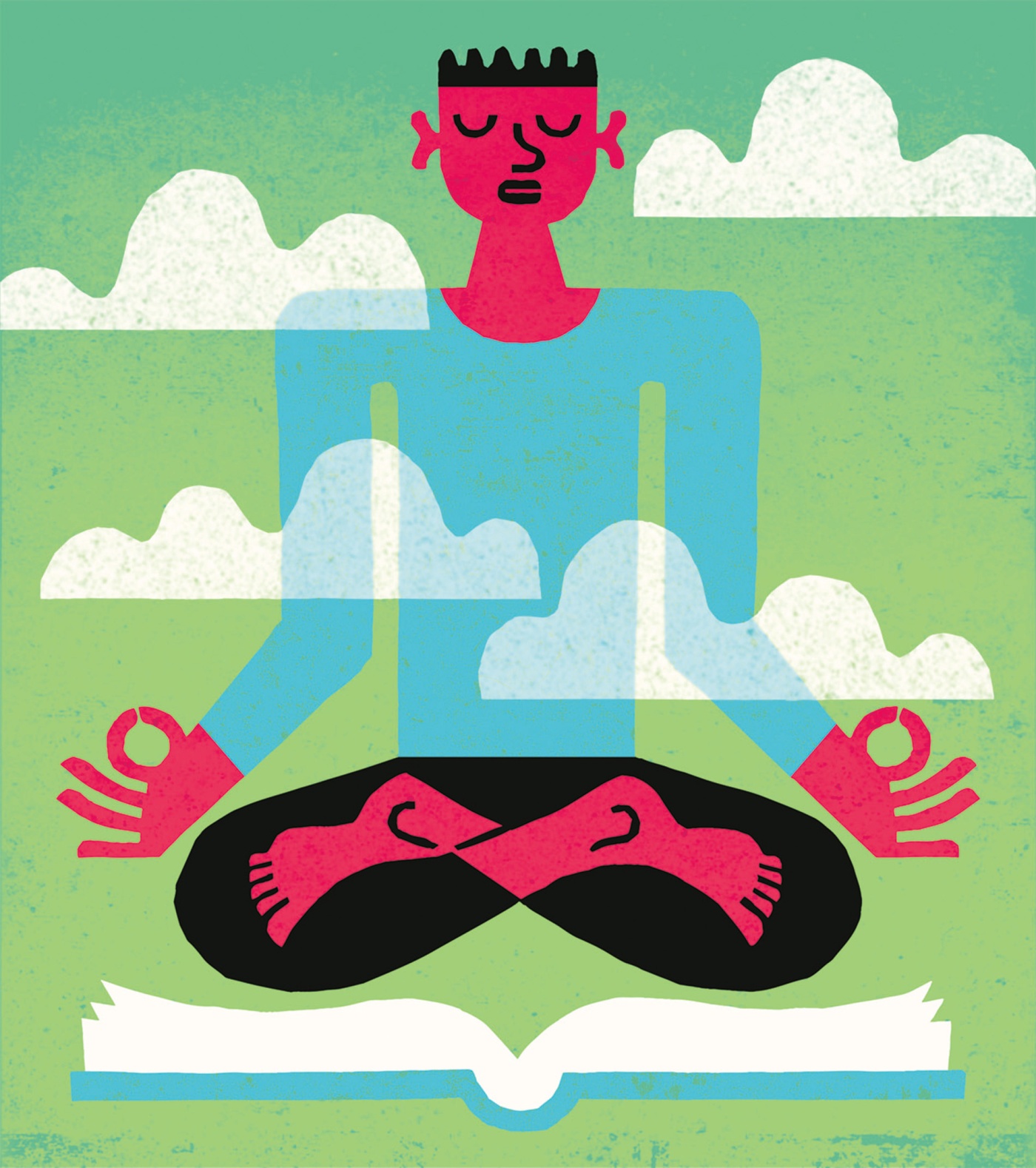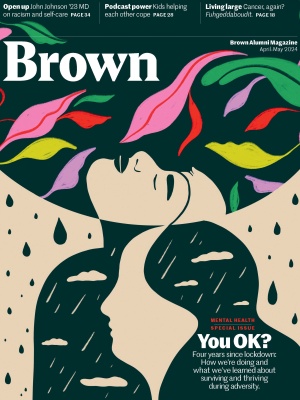Mainstreaming Mindfulness
Professor Eric Loucks is on a mission
As director of the Mindfulness Center at Brown, Eric B. Loucks makes mindfulness—a buzzy term backed by thousands of years of practice that describes the ability to nonjudgmentally attend to one’s own physical and mental processes—accessible to young adults. The fact that his class, PHP1880 (Meditation, Mindfulness and Health), fills within minutes on registration day shows how hungry Gen Z adults are for stress management tools, he says, and young adulthood is one of the best times to begin practicing.

Today Loucks is standing in a lecture hall packed with 120 students, each holding a box of raisins. After leading a five-minute deep-breathing meditation, he invites them to explore their raisins using different senses. They can taste and smell the chewy, sweet morsels. Maybe, he suggests, they shake the box and observe the sound or roll a plump, wrinkly raisin between their thumb and forefinger and notice the sensation. Next, Loucks has them “unpack what it was like to be so present while eating something so simple.” One student shares how peaceful he felt—an unusual but pleasant absence of worry over deadlines, exams, and the future in general.
“It’s this inflection point in life,” Loucks says. “They’ve recently left home and are thinking about their future, both career- and family-wise.” But they’re also mired in anxiety; when Covid forced PHP1880 online, he asked students early on, “What brought you to this class?” and asked everyone to enter their responses simultaneously. “It was,” he describes, “a chat waterfall of ‘Stress.’”
College students are physiologically primed to benefit from early mindfulness training, as their prefrontal cortex, the brain region governing logic, decision-making, and self-awareness, is still actively maturing. That means healthy habits can be more easily cemented, says Loucks, an associate professor of behavioral and social sciences and epidemiology at the School of Public Health and an associate professor of medicine at the Warren Alpert Medical School.
PHP1880 inspired Loucks’s book, The Mindful College Student: How to Succeed, Boost Well-Being and Live the Life You Want at University and Beyond, and his mindfulness-based college program, an asynchronous, noncredit online course open to 18- to 29-year-olds (whom Loucks calls “emerging adults”) worldwide that teaches emotional regulation and attention control via a mix of self-reflection questions, journaling, recorded meditations, and body scan activities.
Practiced consistently, mindfulness, with its emphasis on deep breathing and emotional self-regulation, lowers stress and loneliness; enhances sleep, nutrition, and exercise habits; and combats depression (which has been described as living in the past) and anxiety (worrying about the future) by “bringing your wisdom into the present moment,” Loucks says. “I always tell students, “As long as you’re breathing, there’s more right with you than wrong with you.’”




